Category
- Discounted Books
- English Book Bundles
- University Magazines
- சிறுவர்களுக்கான புத்தகங்கள்
- Children Books
- English Books
- Current Affairs
- Military & Intelligence
- Short Stories
- Fiction
- Poetry
- Environment & Nature
- Science
- Medicine
- Linguistics
- Atheism & Agnosticism
- (Auto)Biography & Memoir
- Business & Management
- Creativity
- Economics
- Education & Research
- Health & Nutrition
- History
- Humor
- Love & Relationships
- Parenting
- Personal Development
- Personal Finance
- Philosophy
- Politics
- War
- Psychology
- Religion & Spirituality
- Society & Culture
- Sports
- Travel & Adventure
- Technology & the Future
- True Crime
- Women Empowerment
- தமிழ் Books
- Book Bundles ( தமிழ் )
- சட்டம்
- இயற்கை
- கட்டுரை
- கணிதம்
- பயணக்குறிப்புகள்
- விவசாயம்
- அரசியல்
- ஆரோக்கியம்
- உளவியல்
- புனைவு
- காதல் மற்றும் உறவு
- சமூகவியல்
- சுயசரிதைகள் மற்றும் நினைவுகள்
- சுயமுன்னேற்றம்
- தத்துவஞானம்
- தொழில்நுட்பம் & எதிர்காலம்
- பொருளாதாரம்
- போர்
- பணம்
- மதம் & ஆன்மீகம்
- வணிகம் & மேலாண்மை
- வரலாறு
- விஞ்ஞானம் & பிரபல அறிவியல்
- விளையாட்டு
- சினிமா
- கவிதைகள்
- குழந்தை வளர்ப்பு
- குற்றம்
- மருத்துவம்
- மொழி
Product categories
- Children Books
- Discounted Books
- English Book Bundles
- English Books
- (Auto)Biography & Memoir
- Atheism & Agnosticism
- Business & Management
- Creativity
- Current Affairs
- Economics
- Education & Research
- Environment & Nature
- Fiction
- Health & Nutrition
- History
- Humor
- Linguistics
- Love & Relationships
- Medicine
- Military & Intelligence
- Parenting
- Personal Development
- Personal Finance
- Philosophy
- Poetry
- Politics
- Psychology
- Religion & Spirituality
- Science
- Short Stories
- Society & Culture
- Sports
- Technology & the Future
- Travel & Adventure
- True Crime
- War
- Women Empowerment
- University Magazines
- சிறுவர்களுக்கான புத்தகங்கள்
- தமிழ் Books
- Book Bundles ( தமிழ் )
- அரசியல்
- ஆரோக்கியம்
- இயற்கை
- உளவியல்
- கட்டுரை
- கணிதம்
- கவிதைகள்
- காதல் மற்றும் உறவு
- குற்றம்
- குழந்தை வளர்ப்பு
- சட்டம்
- சமூகவியல்
- சினிமா
- சுயசரிதைகள் மற்றும் நினைவுகள்
- சுயமுன்னேற்றம்
- தத்துவஞானம்
- தொழில்நுட்பம் & எதிர்காலம்
- பணம்
- பயணக்குறிப்புகள்
- புனைவு
- பொருளாதாரம்
- போர்
- மதம் & ஆன்மீகம்
- மருத்துவம்
- மொழி
- வணிகம் & மேலாண்மை
- வரலாறு
- விஞ்ஞானம் & பிரபல அறிவியல்
- விளையாட்டு
- விவசாயம்
Divided: Why We’re Living in an Age of Walls
Rs. 3,590.00 Original price was: Rs. 3,590.00.Rs. 2,990.00Current price is: Rs. 2,990.00.

Tim Marshall
New from the No.1 Sunday Times bestselling author of Prisoners of Geography We feel more divided than ever. This riveting analysis tells you why. Walls are going up. Nationalism and identity politics are on the rise once more. Thousands of miles of fences and barriers have been erected in the past ten years, and they are redefining our political landscape.
There are many reasons why we erect walls, because we are divided in many ways: wealth, race, religion, politics. In Europe the ruptures of the past decade threaten not only European unity, but in some countries liberal democracy itself. In China, the Party’s need to contain the divisions wrought by capitalism will define the nation’s future. In the USA the rationale for the Mexican border wall taps into the fear that the USA will no longer be a white majority country in the course of this century.
Understanding what has divided us, past and present, is essential to understanding much of what’s going on in the world today. Covering China; the USA; Israel and Palestine; the Middle East; the Indian Subcontinent; Africa; Europe and the UK, bestselling author Tim Marshall presents a gripping and unflinching analysis of the fault lines that will shape our world for years to come.
Out of stock
Notify me when stock available
About the Author
Book Specifications
Binding: Paperback
Pages: 266
Published Year: 2018
Publisher: Elliott & Thompson Limited
ISBN: 9781783963744
Related products
-
Intentional Integrity: How Smart Companies Can Lead an Ethical Revolution
Rs. 2,790.00Original price was: Rs. 2,790.00.Rs. 1,990.00Current price is: Rs. 1,990.00.or 3 X Rs.663.33 with Read more
Read moreRobert Chesnut
- * An Inc. Magazine Top 10 Business Book for 2020 *
“Stop talking about bringing your values to work and learn how to actually DO it!” ―Kim Scott, author of Radical Candor
“The ethical expectation for companies is wonderfully changing from ‘do no evil’ to ‘do good.’ Companies and their leaders need to put ethics and integrity at the center of their mission and culture. Rob is an insider who’s combined doing good with doing business well in two iconic Silicon Valley companies. His book contains smart, practical advice for anyone looking to do good and do well.” ―Reid Hoffman, co-founder of LinkedIn and author of Blitzscaling
“No one has wrestled with more difficult business integrity challenges over the last 20 years than Rob. His insights will instruct you how to drive integrity into your culture. Now, more than ever, we need someone to lead a constructive, direct conversation about integrity in business―Rob delivers.” ―Meg Whitman, CEO of Quibi, former CEO of HP and eBay Inc.
“Rob and I were peers at Airbnb and together we helped build a culture and public-facing brand with integrity as a core value. Not only was the work strategically brilliant but under Rob’s leadership, it was embedded into the very heart of the company. Rob brings creativity, empathy, credibility and a great sense of humor to this important topic ― he makes ethics human and fun.” ―Jonathan Mildenhall, cofounder and CEO, TwentyFirstCenturyBrand
“Drawing on considerable experience with the nuances and circumstances of integrity violations at Airbnb, Chesnut offers plentiful examples of common integrity issues… He is especially good on such matters as enforcing consequences and handling situations involving violators who are high-performing employees. Valuable reading for companies that want to get serious about workplace ethics.” ―Kirkus Reviews
-
Capital (Das Capital)
Rs. 4,490.00or 3 X Rs.1,496.67 with Read more
Read moreKarl Marx
Capital is a critical analysis of capitalism as political economy and how it is the precursor of the socialist mode of production. Karl Marx proposes that the motivating force of capitalism is in the exploitation of labour, whose unpaid work is the ultimate source of profit and surplus value. The employer can claim right to the profits (new output value), because he or she owns the productive capital assets (means of production), which are legally protected by the State through property rights. In producing capital (money) rather than commodities (goods and services), the workers continually reproduce the economic conditions by which they labour. Capital proposes an explanation of the “laws of motion” of the capitalist economic system, from its origins to its future, by describing the dynamics of the accumulation of capital, the growth of wage labour, the transformation of the workplace, the concentration of capital, commercial competition, the banking system, the decline of the profit rate and land-rents.
-
The Tipping Point: How Little Things Can Make a Big Difference
Rs. 1,990.00or 3 X Rs.663.33 with Read more
Read moreMalcolm Gladwel
‘Hip and hopeful, THE TIPPING POINT is like the idea it describes: concise, elegant but packed with social power. A book for anyone who cares about how society works and how we can make it better’ — George Stephanopoulos
“A wonderful page-turner about a fascinating idea that should affect the way every thinking person looks at the world.” —Michael Lewis
“A fascinating book that makes you see the world in a different way.”―Fortune
“Gladwell has a knack for rendering complex theories in clear, elegant prose, and he makes a charismatic tour guide.”―San Francisco Chronicle
“Undeniably compelling. . . terrifically rewarding.”―Claire Dederer, Seattle Times
“As a business how-to, The Tipping Point is truly superior, brimming with new theories on the science of manipulation.”―Aaron Gell, Time Out
The tipping point is that magic moment when an idea, trend, or social behavior crosses a threshold, tips, and spreads like wildfire. Just as a single sick person can start an epidemic of the flu, so too can a small but precisely targeted push cause a fashion trend, the popularity of a new product, or a drop in the crime rate. This widely acclaimed bestseller, in which Malcolm Gladwell explores and brilliantly illuminates the tipping point phenomenon, is already changing the way people throughout the world think about selling products and disseminating ideas.
Gladwell introduces us to the particular personality types who are natural pollinators of new ideas and trends, the people who create the phenomenon of word of mouth. He analyzes fashion trends, smoking, children’s television, direct mail, and the early days of the American Revolution for clues about making ideas infectious, and visits a religious commune, a successful high-tech company, and one of the world’s greatest salesmen to show how to start and sustain social epidemics.
-
Guns, Germs, and Steel: The Fates of Human Societies
Rs. 2,990.00or 3 X Rs.996.67 with Read more
Read moreJared Diamond
- New York Times Bestseller
- Pulitzer Prize for General Nonfiction (1998)
- Royal Society Science Book Prize for General Prize (1998)
- California Book Award for Nonfiction (Gold) (1997)
- Puddly Award for History (2001)
- Phi Beta Kappa Award in Science (1997)
‘A book of big questions, and big answers‘ Yuval Noah Harari, bestselling author of Sapiens
“Artful, informative, and delightful…. There is nothing like a radically new angle of vision for bringing out unsuspected dimensions of a subject, and that is what Jared Diamond has done.” ― William H. McNeil, New York Review of Books
“An ambitious, highly important book.” ― James Shreeve, New York Times Book Review
“A book of remarkable scope, a history of the world in less than 500 pages which succeeds admirably, where so many others have failed, in analyzing some of the basic workings of culture process…. One of the most important and readable works on the human past published in recent years.” ― Colin Renfrew, Nature
“The scope and the explanatory power of this book are astounding.”
― The New Yorker“No scientist brings more experience from the laboratory and field, none thinks more deeply about social issues or addresses them with greater clarity, than Jared Diamond as illustrated by Guns, Germs, and Steel. In this remarkably readable book he shows how history and biology can enrich one another to produce a deeper understanding of the human condition.” ― Edward O. Wilson, Pellegrino University Professor, Harvard University
“Serious, groundbreaking biological studies of human history only seem to come along once every generation or so. . . . Now [Guns, Germs, and Steel] must be added to their select number. . . . Diamond meshes technological mastery with historical sweep, anecdotal delight with broad conceptual vision, and command of sources with creative leaps. No finer work of its kind has been published this year, or for many past.” ― Martin Sieff, Washington Times
“[Diamond] is broadly erudite, writes in a style that pleasantly expresses scientific concepts in vernacular American English, and deals almost exclusively in questions that should interest everyone concerned about how humanity has developed. . . . [He] has done us all a great favor by supplying a rock-solid alternative to the racist answer. . . . A wonderfully interesting book.” ― Alfred W. Crosby, Los Angeles Times
“An epochal work. Diamond has written a summary of human history that can be accounted, for the time being, as Darwinian in its authority.” ― Thomas M. Disch, The New Leader
-
No Filter: The Inside Story of how Instagram Transformed Business, Celebrity and our Culture
Rs. 3,190.00Original price was: Rs. 3,190.00.Rs. 2,390.00Current price is: Rs. 2,390.00.or 3 X Rs.796.67 with Read more
Read moreSarah Frier
- Winner of the FT & McKinsey Business Book of the Year Award 2020
- One of the best books of the year according to: The Times | Fortune | Financial Times | Inc. | Economist | Newsweek
“Happily—this is a book about Silicon Valley. It is a record of a single app moving through the place. And in making that record, in hewing closely to Instagram and its founders, Kevin Systrom and Mike Krieger, while giving new texture to the Valley’s major players, like Jack Dorsey and Mark Zuckerberg, Frier tells the story of how that place works….The book manages to be clear-eyed and objective about the founders and their many flaws, without sensationalizing or oversimplifying—a hard balance to strike in tech coverage right now….we need a book like this to explain what it is I’m tapping on all day. I spend hours staring at the screen, and now I have a better sense of who’s staring back.” —New York Times
“No Filter is a vibrant play-by-play of how Instagram reached that level of influence through the business of manufacturing coolness….Frier’s version of that story is rich with details, based on hundreds of interviews including sit-downs with the app’s co-founders Kevin Systrom and Mike Krieger. Armed with their perspective, Frier is able to draw a line between each decision the founders made and the cultural consequences….The irresistible drama of No Filter plays out between the founders and Facebook CEO Mark Zuckerberg.” —NPR
“Deeply sourced….Frier delivers a compelling tale of jealousy…. The David-and-Goliath tussle is deftly interwoven by Frier with another tale: the transformation of Instagram itself, from the photo app known for its artsy filters to the creator of ‘creators.'” —Financial Times
“If Aaron Sorkin wants to make a sequel to the movie The Social Network, he has his source material right here. Frier, a tech journalist, was given enviable access to Instagram’s founders and other key players. The result is an inside-the-room chronicle of one of Silicon Valley’s most fascinating and fraught acquisitions. A tale of luck, smarts, and strategy, No Filter also reminds us how much business depends on personal chemistry or—in the case of Facebook’s Mark Zuckerberg and Instagram’s Kevin Systrom—the lack thereof. Just as intriguing is Frier’s clear-eyed commentary on what the rise of Instagram culture means.” —Inc, Top 10 New Business Books for 2020
“Successful startups in Silicon Valley are sometimes described as being akin to building a spaceship in mid-flight. With No Filter, the intrepid Sarah Frier takes you inside the spaceship that became Instagram. A deeply reported and beautifully written account of a company that has changed society, fame, culture, business, and communication—sometimes for the better and, as Frier so adeptly shows, also for the worse.” —Nick Bilton, special correspondent for Vanity Fair and author of Hatching Twitter
“With No Filter, Sarah Frier has delivered a brilliant exploration of the highs and lows of human nature. The book is part business drama—packed with tales of creativity, ambition, and intrigue—and part an anthropologist’s examination of modern life. Frier’s vivid reporting and electric storytelling provide the definitive account of how Instagram turned into a cultural phenomenon and what the app’s success says about all of us.” —Ashlee Vance, author of Elon Musk: Tesla, SpaceX, and the Quest for a Fantastic Future
-
Sapiens: A Brief History of Humankind
Rs. 3,590.00or 3 X Rs.1,196.67 with Read more
Read moreYuval Noah Harari
- Royal Society of Biology General Book Prize Nominee (2015)
- **ONE OF THE GUARDIAN‘S 100 BEST BOOKS OF THE 21st CENTURY**
- **THE MULTI-MILLION COPY BESTSELLER**
- #1 New York Times Bestseller
- J. A. Hollon palkinto (2017)
- The Summer Reading Pick for President Barack Obama, Bill Gates, and Mark Zuckerberg.
“I would recommend this book to anyone interested in a fun, engaging look at early human history… You’ll have a hard time putting it down” –Bill Gates
Interesting and provocative… It gives you a sense of how briefly we’ve been on this Earth ― Barack Obama
Jaw-dropping from the first word to the last… It may be the best book I’ve ever read ― Chris Evans
Tackles the biggest questions of history and the modern world… Written in unforgettably vivid language ― Jared Diamond
Startling… It changes the way you look at the world ― Simon Mayo
One of the best books I’ve read recently… Gives an excellent overview of how our species has developed ― Lily Cole
Sweeps the cobwebs out of your brain… Radiates power and clarity, making the world strange and new ― Sunday Times
Sapiens is packed with heretical thinking and surprising facts. This riveting, myth-busting book cannot be summarised in any detail; you will simply have to read it — John Gray ― Financial Times
-
Made to Stick: Why some ideas take hold and others come unstuck
Rs. 3,490.00Original price was: Rs. 3,490.00.Rs. 3,190.00Current price is: Rs. 3,190.00.or 3 X Rs.1,063.33 with Add to cart
Add to cartChip Heath, Dan Heath
Fake news often sticks while the truth goes missing due to emotional appeal, cognitive biases, and narrative structures. Fake news is often designed to be sensational and emotionally charged, triggering cognitive biases such as confirmation bias and emotional reasoning, which make it more likely to be believed and remembered. Additionally, fake news may have compelling narratives that create memorable and vivid mental images, making it stick in people’s minds even when it’s been debunked.
Disproved urban legends persist because they tap into deeply held beliefs, fears, or desires, and are often transmitted through social networks or repeated by trusted sources. These urban legends may have narrative structures that make them memorable and engaging, and they may also play on emotions and trigger cognitive biases, making them difficult to shake off even when proven false. As a result, fake news and urban legends can spread widely and persist in people’s minds, while the truth may struggle to gain the same level of attention and retention.
-
Finding Freedom: Harry and Meghan and the Making of a Modern Royal Family
Rs. 2,990.00Original price was: Rs. 2,990.00.Rs. 2,190.00Current price is: Rs. 2,190.00.or 3 X Rs.730.00 with Read more
Read moreOmid Scobie
- INSTANT INTERNATIONAL BESTSELLER
- NEW YORK TIMES BESTSELLER
- #1 SUNDAY TIMES BESTSELLER
- ONE OF THE TOP 10 BEST-SELLING ROYAL BIOGRAPHIES OF ALL TIME
“If you’re looking for a primer to the saga of the Duke and Duchess of Sussex, this book is a good place to start.” – New York Times–
“Required reading for any modern royal family fan.” — Buzzfeed
“The definitive book about Meghan and Harry.” — The Cut
-
A Short History of Humanity: How Migration Made Us Who We Are
Rs. 2,790.00or 3 X Rs.930.00 with Read more
Read moreJohannes Krause & Thomas Trappe
A highly readable, personal guide to the twists and turns in unravelling ancient DNA: Krause and Trappe expertly unravel the story of ancient DNA to reveal how the new field of archaeogenetics has utterly transformed understanding of our deep past. ― Rebecca Wragg Sykes, author of Kindred: Neanderthal Life, Love, Death, and Art
A Short History of Humanity is an eloquent and timely reminder that viruses and other pathogens of infectious disease are merely fellow-travellers in an epic journey that began when the first human migrants left Africa around 200,000 years ago. The solution to pandemics is not to close borders in the hope of keeping viruses out but to recognise that we are a fundamentally peripatetic species united in our shared genetic inheritance and common humanity. ― Mark Honigsbaum, author of A Pandemic Century
A valuable contribution to our understanding of who we are and how we got here. ― Tim Marshall, bestselling author of Prisoners of Geography
One of those books that stops you dead in your tracks and makes you say out loud – why didn’t I know that before? So easy to read. So logically argued. So satisfyingly sensible and thought-provoking. Read it, think about it, and then read it again. An absolute revelation. ― Professor Sue Black, bestselling author of All That Remains
Extremely enriching. Rarely, have I been able to learn so much and get such radically new insights over 250 pages ― Süddeutsche Zeitung
-
Turning Points : A Journey Through Challenges
Rs. 1,390.00Original price was: Rs. 1,390.00.Rs. 1,190.00Current price is: Rs. 1,190.00.or 3 X Rs.396.67 with Read more
Read moreA.P.J. Abdul Kalam
The inspiring sequel to Wings of Fire. Over 3 lakh copies sold.‘It was like any other day on the Anna University campus in Chennai. As I was returning to my room in the evening, the vice-chancellor, Prof. A. Kalanidhi, fell in step with me. Someone had been frantically trying to get in touch with me through the day, he said. Indeed, the phone was ringing when I entered the room. When I answered, a voice at the other end said, ‘The prime minister wants to talk with you.’ Some months earlier, I had left my post as Principal Scientific Adviser to the Government of India to return to teaching. Now, as I spoke to the PM, Atal Bihari Vajpayee, my life was set for an unexpected change.
‘Turning Points takes up the incredible Kalam story from where Wings of Fire left off. It brings together details from his career and presidency that are not generally known as he speaks out for the first time on certain points of controversy. It is a continuing saga, above all, of a journey – individual and collective – that will take India to 2020 and beyond as a developed nation.

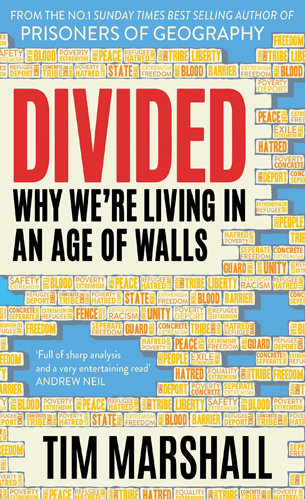
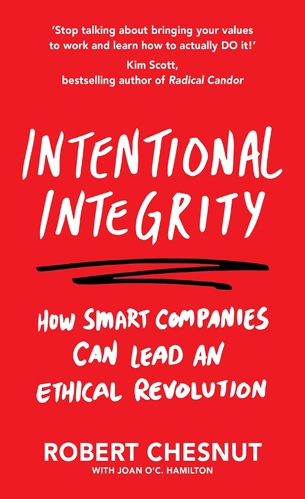


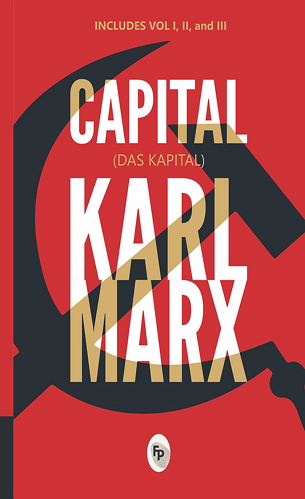
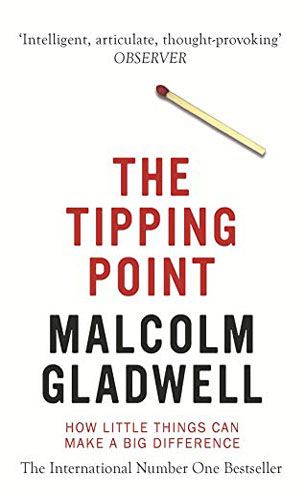





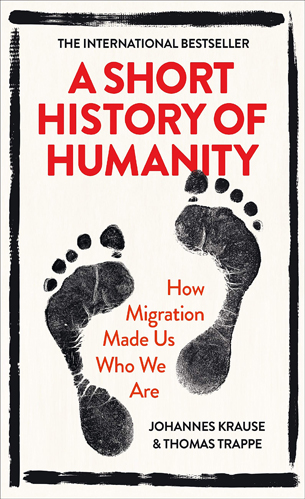
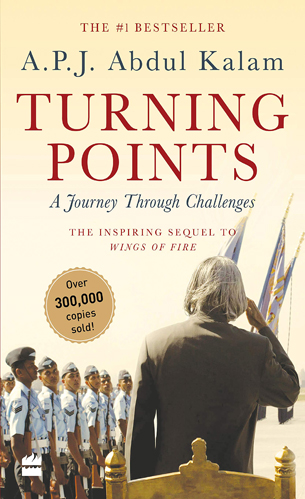
Reviews
There are no reviews yet.